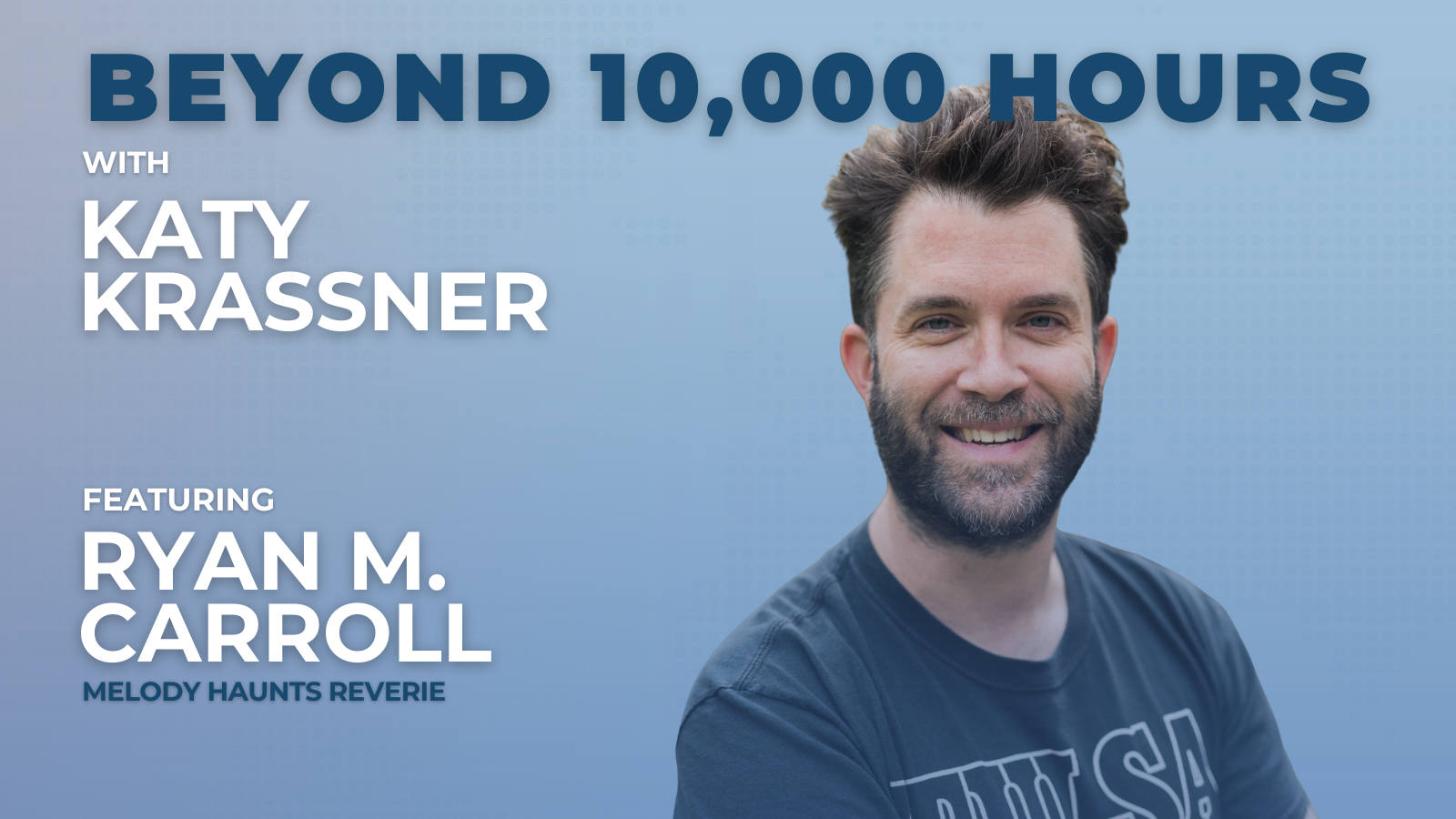Beyond 10,000 Hours Feat. Ryan M. Carroll of Melody Haunts Reverie:
“You know I read it in a magazine”
I never had a strong desire to be a performer. That wasn’t my thing at all. I went to Fordham University in New York to focus on media studies. At the time, I pursued music journalism and was a freelance editorial assistant at VIBE magazine for a summer. At some point I realized that I wanted to be more involved in the creation of content and thought the way to do that was to move to Los Angeles and get into film.
“Just try and get your foot in the door. And maybe, with luck, you may”
I’ve always really loved both music and film. I thought about making a career out of film development, but looking back, it makes sense that I pivoted into the music supervision and sync licensing space. It’s a combination of two things that I love. I had an informational meeting with a friend of mine in LA who is a music supervisor and got really excited by what he does. Reaching out to my film contacts, I asked them to introduce me to some music supervision people- and then took 7 classes at UCLA extension; because I don’t actually make music, I felt it was important that that I learn about it. I started with temp jobs at music companies, and that’s how I got my foot in the door.
“Don’t ask, I’m an agent”
The short answer to what I do every day is that I try to get placements in film, TV, advertisements, trailers, videogames and podcasts (to name but a few) for the artists I work with. Ideally, I am getting searches from Supervisors who are looking for something broad, or hyper specific, that they need that DAY. They almost always provide a budget, specs (a brief), and it’s almost always time sensitive. Since that’s frequently a factor, you want to be able to send something in quickly!
Another part of what I do is outreach where I send music to people. For instance, I watch a lot of television and may say, “I know you do music supervision for “THIS SHOW” and THIS SONG by THIS ARTIST could work great for your show!” We also send email blasts out – mostly to stay in touch and let them know you’re still there.
Networking is a really good way to meet people who are in Sync and Publishing but it’s a lot harder to network if you’re not near a major city. There are events that are focused on music supervision or have it as part of their panel schedule, so it’s worth going. Keep your eye out for MONDO (NYC), SXSW (Austin), NXNE (Toronto), Sync Summit (Los Angeles and New York) and Guild of Music Supervisors conferences. I am involved with the Guild and will be involved with GMS-Mondo this year.
“I will be the answer”
Two questions I get a lot: First- ‘Why is a One Stop desirable?’ One Stop means that that I represent the entirety of the song -100% of the sound recording (master) and the writing (publishing). So, when I pitch, I rep the entire song and can clear the song and collect the monies made. It makes things much simpler, and it all gets done in one shot. It also allows for greater flexibility. The other is ‘Why is it important to have clean and instrumental versions of all recordings?’ Simply, you need to always send cleans to Television shows because you can’t have a song with any curse words or salacious content. Yes, I know the streaming shows can have songs with curse words, but sometimes they don’t want them. Film is different.
Regarding instrumentals – if a song does get synced, in the world of all things editing, they like to have the instrumentals so they can cut tracks in different ways. If it’s a really old song that doesn’t have an instrumental, or people from the original recording are no longer alive to create it, AI has been helpful. When I pitch a song, I send instrumentals from the get-go, so they know I have it.
“Sometimes I don’t know what I will find”
In order to want to work with an artist, or a band, or an instrumentalist, I need to feel like I will be able to find an opportunity to pitch their music based on marketplace demand. I also have to feel a certain way about the music and the creator. I want to work with artists I respect and with whom I feel a connection.
All syncs are like a little miracle. You have to get the brief, then send in the music, then wait because what the supervisor thinks about it may not be what I think about it. And the music supervisor isn’t always the person making the decision, they’re just pushing it on to the decision maker. You should always assume dozens of other people are pitching for this too. I do my best to get their music heard by the right people.
This has been my best year, but getting syncs is a hard gig. I recently got 2 syncs on “Greys Anatomy” and I am proud of that. The artists are also really grateful, and that helps me keep going. I got a sync for the show “Sullivan’s Crossing” and the artist was so thrilled. I also got one of my clients in an upcoming Gregg Araki film, which was very cool.
We all work to pay our bills, of course, but I’m grateful I can do something I am passionate about, and promote the bands and artists I care about and believe in.
Interested in getting heard by music supervisors? We have just the list for you! Get started on Caster now.
